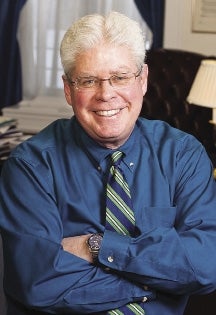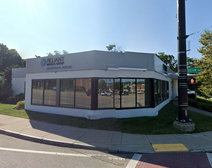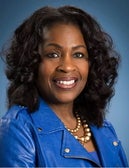Firms with similar names can sow confusion, or provide mutual benefit
Choosing a name is arguably the most important branding decision a company will make. Usually, the name is designed to be catchy and give an organization distinction.
But there are instances in which companies have come up short on distinction. Often, it's because another organization already has that “must have” moniker, and a business simply wasn't aware that failure to differentiate itself from others would cause confusion.
Within Central Massachusetts, various organizations have found themselves in this position, but executives' opinions on whether name confusion harms their businesses are mixed.
Worcester-based Reliant Medical Group is a perfect case study. Reliant and Fallon Health — which, until Feb. 1, was known as Fallon Community Health Plan (FCHP) — were once part of the same organization founded in 1929, with Reliant doing business as Fallon Clinic, providing health care to FCHP subscribers.
Fallon was a health care brand name in the Greater Worcester area. That's why Reliant retained the name “Fallon Clinic,” even after it split with FCHP in 2004 and began operating independently as a physician group.
“(Fallon) has a lot of name equity, a lot of history in the community,” said Linda Coccola, director of marketing and communications at Reliant.
But Reliant executives soon learned that retaining the Fallon name wasn't so simple. There were “all kinds of anecdotes” about patients calling doctors' offices with insurance plan questions, or people wanting to see a doctor but believing they couldn't because they weren't insured by FCHP. Meanwhile, Coccola said FCHP reported receiving calls from people trying to reach doctors.
“It got to the point where our identity was really ambiguous,” Coccola said. That ambiguity prompted Fallon Clinic to conduct a study aimed at measuring how name confusion was impacting the business, and Coccola said it became clear that a change was necessary for the physician group to be successful. So, in 2011, Fallon Clinic became Reliant Medical Group.
It wasn't an easy decision. It was time consuming and costly, said Coccola, who described the process as a “massive communications undertaking.” The public had to be made aware of the name change, and signage and marketing materials across all sites required updates. But three years later, much of the confusion with FCHP has dissipated under the Reliant name, Coccola said.
“It was an opportunity for us to finally lift ourselves out of this ambiguity, to say 'We're a medical group. We're a group of doctors and we're here to take care of you',” Coccola said.
Rule: Don’t confuse the customer
Yet, given the amount of work that can go into such a transition, it's no wonder many companies opt to keep names that can conflict with those of other organizations, even when confusion can be inconvenient from time to time.
Andy Davis, president of Worcester-based Davis Advertising, said there's something to that strategy.
“The last thing you want to do when you have a huge customer base … is to all of a sudden confuse that customer base,” Davis said.
Davis recalled work his firm did for Leominster-based Fidelity Bank a few years ago, which focused on distinguishing itself from the Boston-based financial services giant Fidelity Investments. At the time, financial services firms were battling public-relations woes brought on by a crackdown by the federal government following the Great Recession.
Davis said Fidelity Bank didn't want to share the effects of the crackdown with Fidelity Investments, but wanted to retain its name. So, Davis Advertising helped Fidelity Bank brand its services in a very distinct way in order to differentiate it.
“We decided if they could create a very unique brand, they could avoid problems in the future,” Davis said.
That branding strategy, which Fidelity refers to as “life design” is still in use today, said Edward F. Manzi, Jr., Fidelity's CEO. Manzi said branding to distinguish the bank was preferable to a name change. He noted that Fidelity Bank, founded in 1888, took the name first.
“There's a lot of brand equity,” Manzi said.
Davis also has his own perspective. A common surname, “Davis” is attached to numerous businesses of all types, in the U.S. and beyond. The closest example is Davis Art, which publishes educational materials. The Worcester company once put up a sign at its downtown location, and Davis began getting inquiries about his own business.
Sometimes, it's necessary to fight for your name. Commerce Bank & Trust Co. executives in Worcester learned that several years ago, when TD Banknorth of Portland, Maine (now TD Bank), wanted to change its name to TD Commerce Bank upon acquiring a New Jersey-based Commerce Bank. The local Commerce fought the move in federal court and prevailed.
CEO Brian Thompson said that, as part of legal proceedings, Commerce polled customers and determined that two banks operating with similar names in the same region would be confusing, which strengthened its case.
But some confusion can help
The Doctor Franklin Perkins School in Lancaster had a similar experience when Watertown-based Perkins, the umbrella organization that includes Perkins School for the Blind, put up a billboard in the south end of town bearing the name “Perkins.”
The fact that many people driving through the area assumed the sign refers to The Doctor Franklin Perkins School is just another instance of longstanding confusion of the two schools, said Charlie Conroy, executive director of Franklin Perkins.
The Watertown Perkins shortened its name from “Perkins School for the Blind” to simply “Perkins” in October 2012 and retained “School for the Blind” as an organization within Perkins. But Conroy said Franklin Perkins had used the less formal “Perkins” for years on its materials.
Rather than finding himself irked by the Watertown school's change, Conroy said he welcomed it. He explained that the Franklin Perkins School is 118 years old, but in some ways it operates in the shadow of the other Perkins. That school was founded further back, in 1832, and has a name with global prestige, Conroy noted.
Conroy said that those in the special education field are sophisticated enough to know the difference between the schools, but confusion among the general public has persisted. And that's something Franklin Perkins administrators can live with.
“I think there are certain benefits that come from it,” Conroy said.















0 Comments